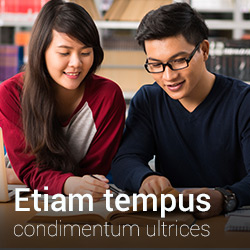Top 12 Tips for Primary School Science - Tip 3
.jpg)
|
1 |
If you spot comparative adjectives / superlatives (e.g. best, weakest, better etc) in the questions, you need to know that those are comparison questions. |
|
2 |
When you see comparision questions, you will need to take reference from other elements provided in the questions and compare them to reach the correct answer. To do this, you must use comparatives adjectives such as “faster, brightest, slowest etc” to form your answer. |
|
3 |
Look at the below question. Do you see the compartive adjective (i.e. stronger) used in the question? Pupil's Answer : Iron nail X will become a stronger electrogmagnet because it has many coils around it. 0 marks will be awarded to this answer. Why ? So what if the Iron nail X has many coils around it ? Does your answer accurately point out that iron nail Y has lesser coils around it ? No, because no superlaxtive words are used. Model Answer : Iron nail X will become a stronger electromagnet because it has more coils around it, as compared to Iron nail Y. Now look at the model answer. The marker can see the comparision very clearly once you have added the word "more" in it. |
|
4 |
It is important to note that sometimes although you do not see the comparision words in the questions, some questions might still need the same technique to get the full marks. Recently, my son had this question in his P6 CA1 paper. I cannot recall the full question, but it asked the student to explain why tsunami is destructive. My son lost 0.5 mark when he did not use the word "greater" to describe the kinetic force of the tsunami waves. It makes sense to add the compartive word here because only an enormous amount of kinectic force will be able to destroy buildings. That's how precise the marking is and this is what differentiates the A* from the A students.
|

Want all these 12 top tips to be neatly consolidated in one PDF Booklet to revise with your child before her exams?
The "Top 12 Tips for Primary School Science" PDF Booklet contains all 12 of the most tried-and-tested Primary School Science tips in 32 colourful pages.
The other title in the series that you have to get is the "20 Primary School Science Misconceptions" PDF Booklet. It helps your child dispel 20 of the common Science myths that cause many children to make mistakes in their exams. in all 29 pages.
Both titles are available at only $2.99 each.
Get them today so that you can immediate use the tips to revise with your child.
=> http://learnsupermart.zaxaa.com/s/11095921836022
=> http://learnsupermart.zaxaa.com/s/11095991035857
Other Articles That You May Like
-

7 Easy and Fun Science Experiments To Do At Home
Experiment #7 - Forces (Frictional Force)
-

7 Easy and Fun Science Experiments To Do At Home
Experiment #6 - Forces (Frictional Force)
-





%20Pri%20Science.jpg)
.jpg)
